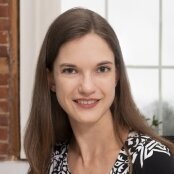
You can watch the video recording of this webinar HERE.
Breast cancer rates are rising globally, especially among younger people. Although known risk factors including increased age, obesity, alcohol use, and genetics play a role, the World Health Organization estimates that about half of breast cancer cases occur in women with no identifiable risk factors. This has led researchers to turn to hazardous environmental exposures, such as chemicals in food, water, and consumer products, as likely factors.
In a recent study, researchers at the Silent Spring Institute identified more than 900 chemicals that could increase breast cancer risk and found that 414 of these chemicals are used in plastics. Many of these chemicals are commonly found in food packaging, personal care products, and household items, making exposure nearly unavoidable.
The ongoing negotiations for a UN global plastics treaty to address plastic production and waste present a critical opportunity to regulate hazardous chemicals in plastics and reduce exposure around the world. In this CHE-Alaska webinar, study co-authors Dr. Jennifer Kay and Rashmi Shakti discussed their findings and how the global plastics treaty could help lower breast cancer rates worldwide.
Featured Speakers

Jennifer Kay, Ph.D., is a Research Scientist at Silent Spring Institute. After completing her PhD and postdoc at the Massachusetts Institute of Technology studying how DNA damaging exposures induce cancer, she now applies that background to study chemical breast cancer risk factors. With the goal of identifying and reducing exposures to the riskiest chemicals, she combines experimental approaches to understand how endocrine disrupting and DNA damaging chemicals cause breast cancer with publicly available toxicity and exposure data to identify which chemicals are most likely to cause this deadly disease in humans.
Rashmi Shakti joined Silent Spring Institute in the fall of 2023 as a Research Associate, after graduating from Harvard with a bachelor’s degree in Applied Math in Biological Sciences. They are applying their computational expertise to identify how chemicals cause breast cancer and which chemicals are most likely to underlie rising rates.
 This webinar was hosted by the CHE-Alaska Partnership, which is coordinated by Alaska Community Action on Toxics (ACAT). Driven by a core belief in environmental justice, ACAT empowers communities to eliminate exposure to toxics through collaborative research, shared science, education, organizing, and advocacy.
This webinar was hosted by the CHE-Alaska Partnership, which is coordinated by Alaska Community Action on Toxics (ACAT). Driven by a core belief in environmental justice, ACAT empowers communities to eliminate exposure to toxics through collaborative research, shared science, education, organizing, and advocacy.
